IN THE FIELD: GENERAL KNOWLEDGE
IN THE FIELD, YOU DEAL WITH UNCERTAINTY AND AN EVER-CHANGING ENVIRONMENT IN YOUR EFFORT TO REDUCE YOUR EXPOSURE TO AVALANCHE RISK. WHEN MOVING THROUGH AVALANCHE-PRONE TERRAIN, YOU WILL ONLY BE ABLE TO ESTIMATE THE PROBABILITY OF TRIGGERING AN AVALANCHE. THE ACCURACY OF THIS ESTIMATE DEPENDS ON YOUR KNOWLEDGE OF THE KEY FACTORS THAT CAUSE AN AVALANCHE TO OCCUR, INFORMATION GATHERED BEFORE HEADING OUT, OBSERVATIONS MADE IN THE FIELD, AND THE OVERALL ANALYSIS ONCE YOU PUT ALL THIS INFORMATION TOGETHER.
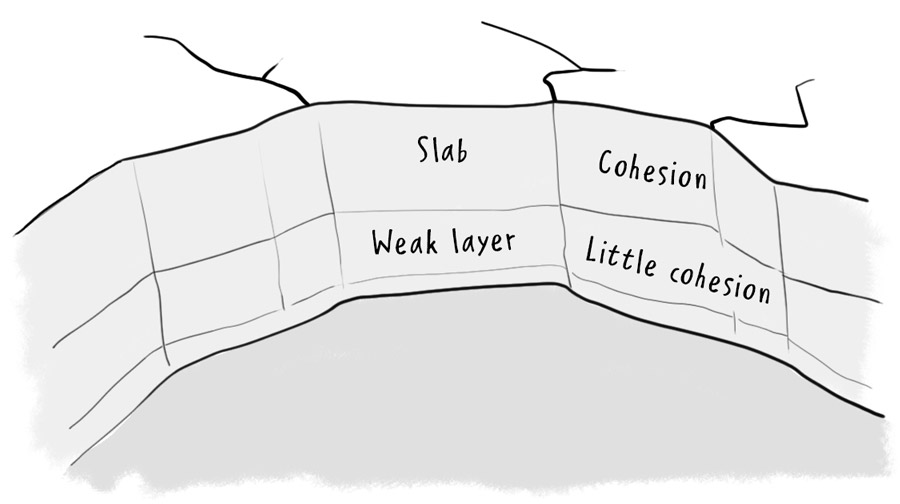
A slab is of a cohesive layer of snow (that can crack) lying on top of a weaker layer that may have little to no cohesion. Skier loading triggers the slab avalanche.
Accidental avalanches occur in large part on slopes at or over 30° steep. What does that mean? The steep section of an advanced run at a ski area is often at or over 30°. When ski touring or backcountry skiing, as soon as you start making kick turns on the ascent, the slope is over 30° steep.
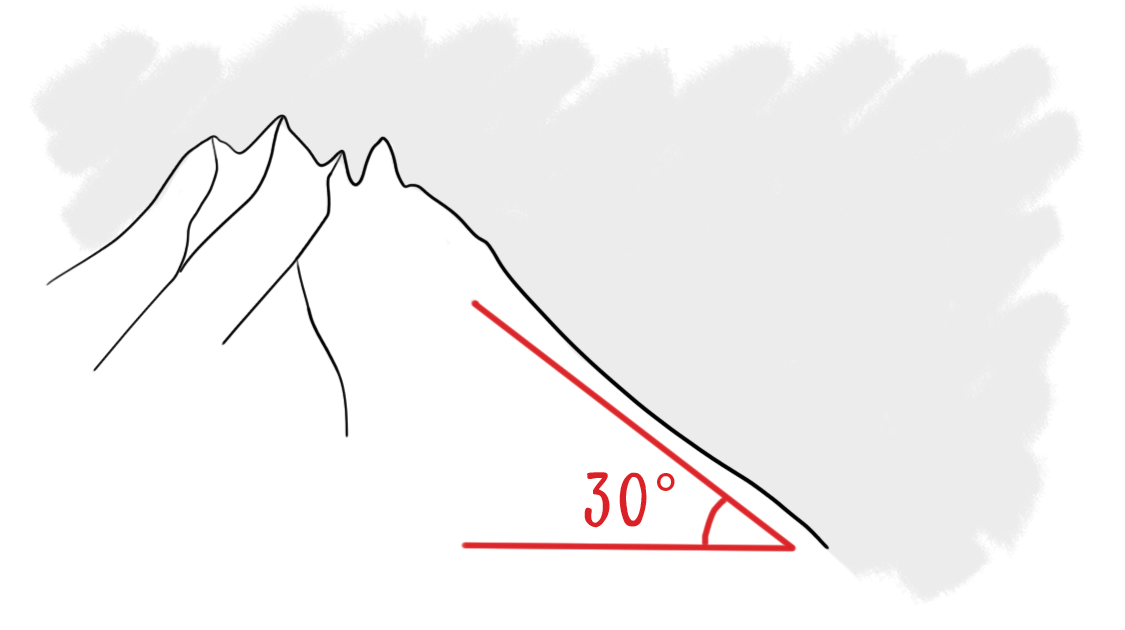
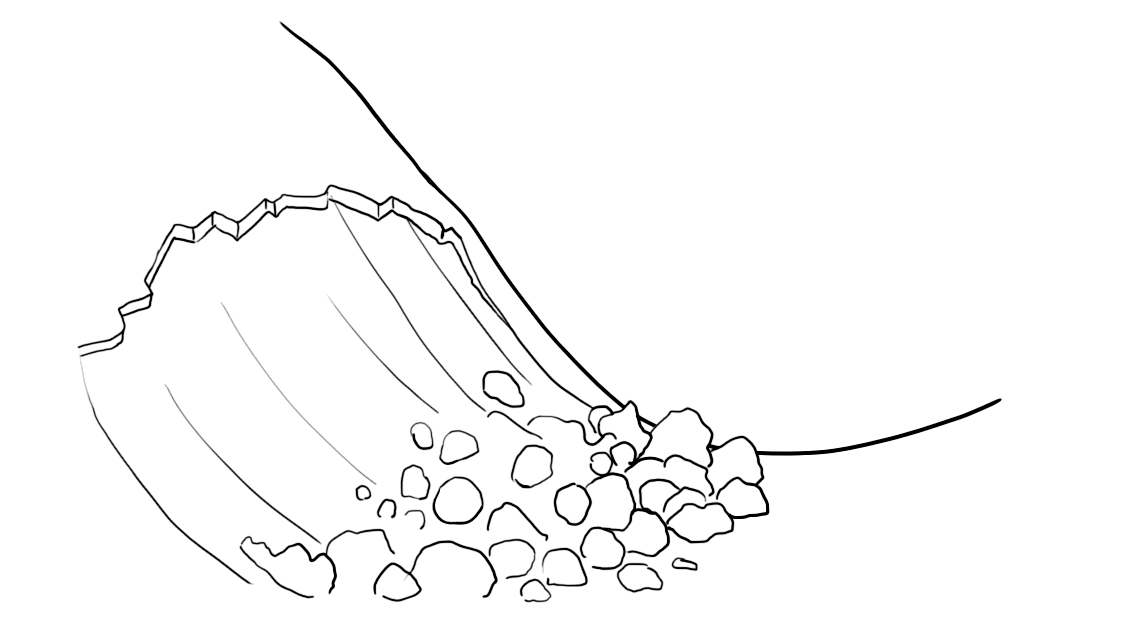
The consequences of an avalanche depend in large part on the terrain. If caught in a slide, you may collide with trees, rocks, or even go over a cliff. Injuries can range from serious to fatal. Theterrain at the bottom of the slope can have a direct impact on the consequences when buried. Such terrain features as gullies, ravines, rivers, lakes, and crevasses can make being buried even worse. You also need to pay attention to the slopes and terrain above the track you plan to set on both the up and the down.
New snow : over 30 cm of new snow is a red flag. With this much new snow (or more), the snowpack can remain unstable for as many as three days after a storm.
Wind-deposited snow : increases the chance of slab formation. The risk is higher on leeward slopes with lots of new wind-deposited snow.
Wet snow : rain or sun melt weakens snowpack stability.
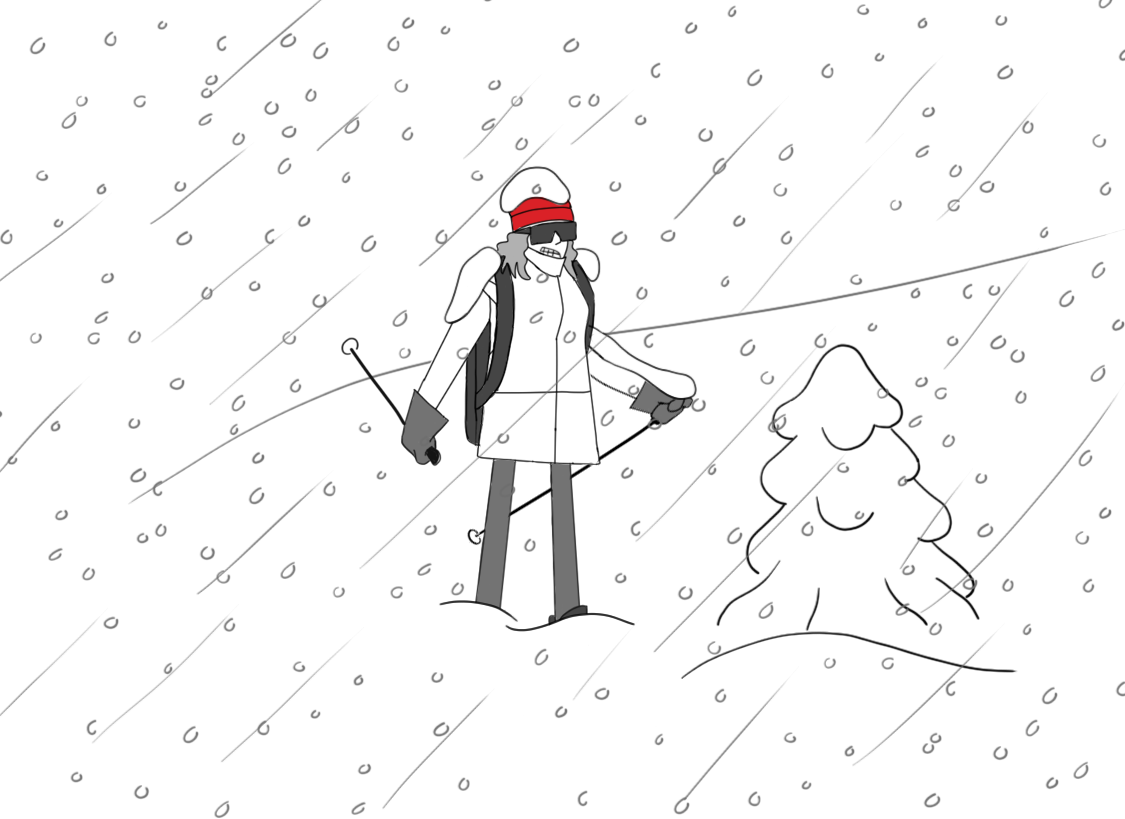
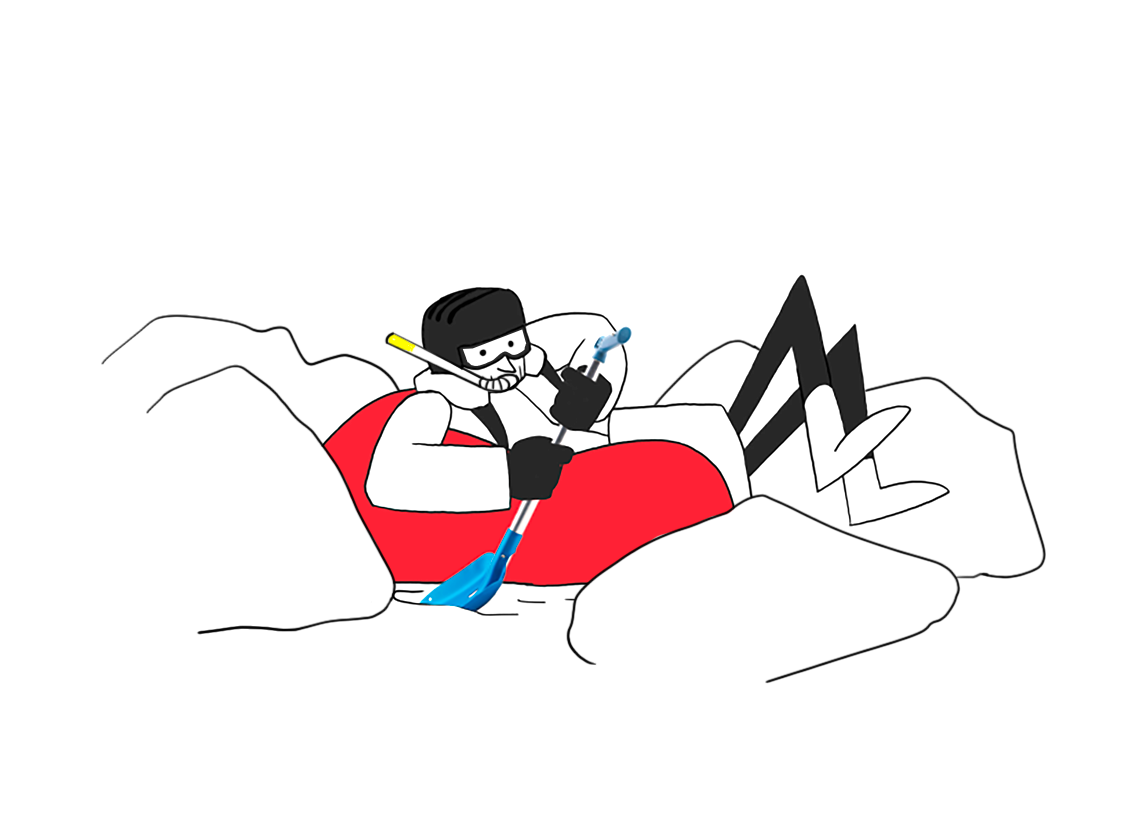
The main cause of death if caught in an avalanche is suffocation when buried. Blunt-force trauma is also one of the major causes of avalanche deaths. In both cases, avalanche victims often commit these simple errors :
- • The victim is alone, without a partner to call for help.
- • The victim is using an outdated transceiver, shovel, and probe, or simply fails to bring their snow-safety equipment with them.
- • Too many avalanche victims buried.
- • Victims pulled into a terrain trap.
The goal is to avoid burial by reducing your exposure to risk.